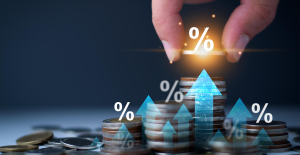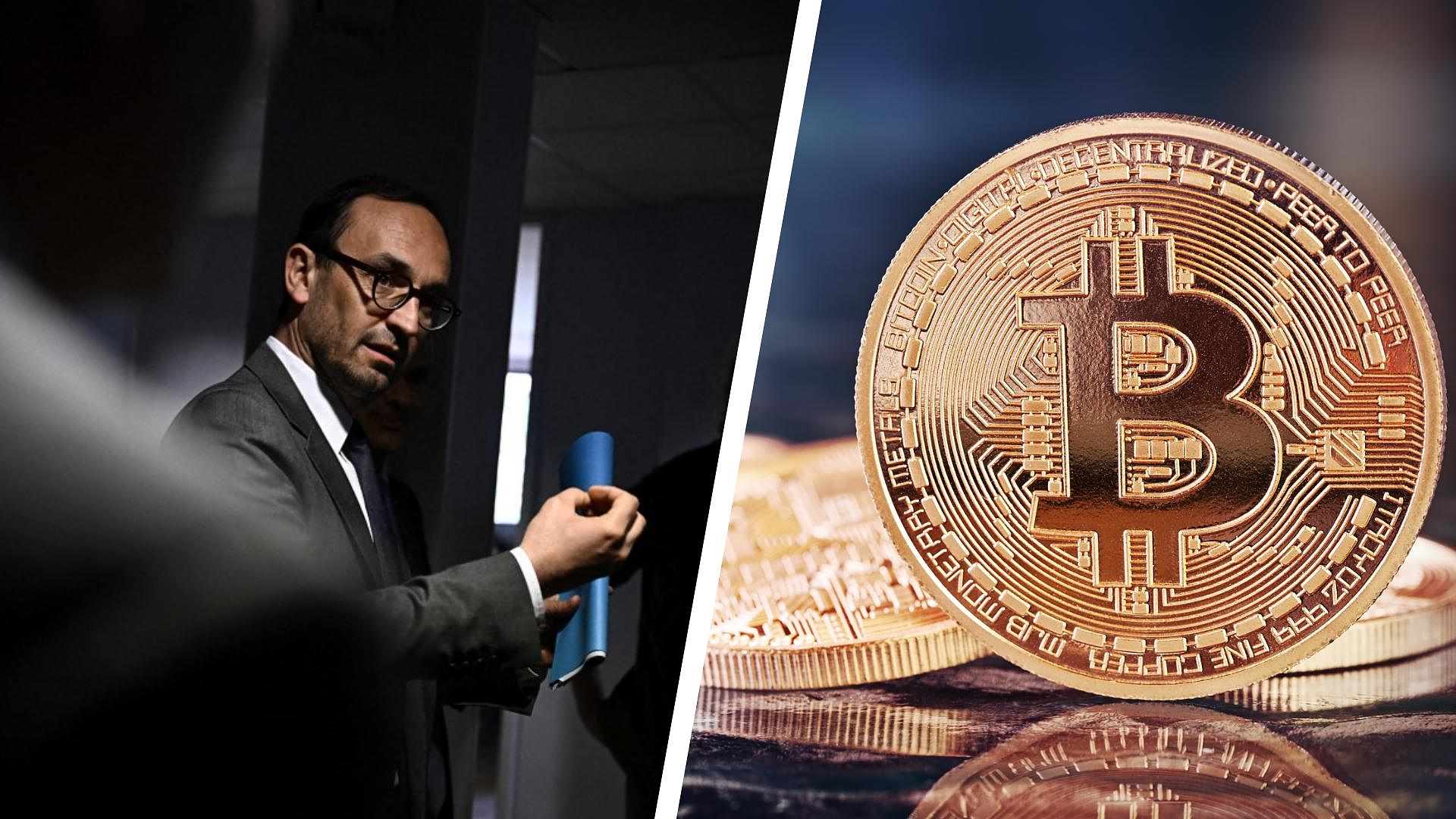Just a few months ago, Veronika Grimm helped develop the gas price brake to get the energy crisis under control. Now all of a sudden there are other problems in the foreground. How does the economic researcher assess the major difficulties facing Silicon Valley Bank and Credit Suisse? Is a new global banking crisis looming?
WELT AM SONNTAG: Professor Grimm, in the Economic Forecast of the Council of Economic Experts you can read that you consider the Silicon Valley Bank (SVB) and Credit Suisse to be isolated cases. What makes you so sure that this will not result in a new banking crisis?
Veronika Grimm: Nobody can say for sure at the moment. However, it would not be a good idea to speculate about this outside of the current state of affairs. SVB was a very special bank. The majority of their customers were start-ups, which results in particularly high risks. Unlike in 2008, it was not completely worthless financial products on the balance sheets of banks around the world that led to the collapse of the SVB this time. Rather, the SVB held extensive government bonds with long maturities and low interest rates. This created problems when uncertainty arose and large amounts of money were withdrawn at once. Because interest rates on the market have now risen significantly, SVB had to sell these bonds at a loss at the current market value in order to cover its customers' cash outflows. That is a very special constellation.
WELT AM SONNTAG: Nevertheless, she took Credit Suisse with her.
Grimm: The imbalance of the SVB led to investors worldwide becoming unsettled. But it is also true that Credit Suisse had been having difficulties for some time, and that was well known. The trigger for the price drop was probably the announcement by the major shareholder from Saudi Arabia, who had caused uncertainty because he had declared that he would not inject any equity. However, this was due to regulatory reasons, not explicitly to a lack of trust. But of course it caused a lot of uncertainty.
WELT AM SONNTAG: It can all be explained rationally, but psychology plays a major role. At Lehman Brothers, it took almost two weeks after the bankruptcy for the global banking crisis to really get going. When can we be sure that this time things will go smoothly?
Grimm: Yes, it all shows what role psychology plays. One should be very vigilant. However, one must also be careful not to increase the risk of a banking crisis through exaggerated alarmism.
WELT AM SONNTAG: As a lesson from the banking crisis, governments promised to regulate the industry in such a way that something like this cannot happen again. Now we're close again. How can that be?
Grimm: Lessons were learned from the events after the financial crisis. Capital requirements have been tightened, the European Central Bank has taken over supervision of the largest banks in the euro area, and there have been stress tests. We are in a better position than we were at the time of the financial crisis, but there are gaps – for example, because you don't keep an eye on risks that haven't arisen for a long time. For example, there were stress tests for risks from low interest rates. Why hasn't one tested what a quick rate hike by the central banks means for the financial institutions? You're always smarter afterwards - you might have to sharpen things here and elsewhere. But it's not just a matter of regulation. The managers of the banks must also have known their risks. But they have done too little about it.
WELT AM SONNTAG: After the 2008 financial crisis, taxpayers should never have to step in for a bank bailout again. 15 years later, that is exactly the case again in Switzerland. Is the state always liable for such large banks?
Grimm: That's a problem. In the current situation, it is understandable that the Swiss government decided to back UBS and Credit Suisse in order to ensure security on the financial markets. Only: if those responsible in the banks believe that the state will always help, then you have long-term stability problems. That's why you have to take a very close look at where regulation needs to be tightened up in order to relieve the taxpayer of liability.
WELT AM SONNTAG: So far, American and Swiss financial institutions have been affected. Is it just luck that EU banks are doing better?
Grimm: After the 2008 crisis, we significantly tightened financial market regulation. The Americans didn't go quite that far. That will certainly help us now, if only because we know more precisely than before where the risks lie in our financial system. But it's not so easy to say whether that's actually enough and whether it explains why it hasn't hit us so far.
WELT AM SONNTAG: With the takeover of Credit Suisse by UBS, a bank is created whose total assets are twice as large as Switzerland's economic output. This means that the country is dependent on a bank. What actually happens if this money house should also get into trouble?
Grimm: First of all, the deal also creates synergy effects. The business areas of the banks are similar, you will be able to realize efficiency gains. This can also mean job cuts. If such a colossus should then get into trouble - for which there are currently no signs - then the state will probably be asked again.
WELT AM SONNTAG: What are the consequences of this crisis for central bank policy? Should they keep raising interest rates to curb inflation?
Grimm: Yes. We're not out of the woods with inflation yet, further rate hikes will be necessary. If the central banks relax too early out of concern for financial market stability, inflation could remain high for longer than expected or even pick up again. That must not happen. On the other hand, the uncertainties in the banking sector are also dampening lending to the economy and indirectly also inflation. The central banks must therefore take a very close look and weigh them up. The situation is extremely challenging.
WELT AM SONNTAG: You say there is no end to the price increases in sight, in Germany high wage agreements are currently being reached. Are we already in a wage-price spiral?
Grimm: Real wages fell in 2023, and a recovery is not expected until next year. By then, if the central bank stays on course appropriately, inflation will slowly come down – though not yet to the ECB's 2% target. I don't currently see a wage-price spiral.
"Everything on shares" is the daily stock exchange shot from the WELT business editorial team. Every morning from 5 a.m. with the financial journalists from WELT. For stock market experts and beginners. Subscribe to the podcast on Spotify, Apple Podcast, Amazon Music and Deezer. Or directly via RSS feed.

 What is chloropicrin, the chemical agent that Washington accuses Moscow of using in Ukraine?
What is chloropicrin, the chemical agent that Washington accuses Moscow of using in Ukraine? Poland, big winner of European enlargement
Poland, big winner of European enlargement In Israel, step-by-step negotiations for a ceasefire in the Gaza Strip
In Israel, step-by-step negotiations for a ceasefire in the Gaza Strip BBVA ADRs fall almost 2% on Wall Street
BBVA ADRs fall almost 2% on Wall Street Breast cancer: less than one in two French women follow screening recommendations
Breast cancer: less than one in two French women follow screening recommendations “Dazzling” symptoms, 5,000 deaths per year, non-existent vaccine... What is Lassa fever, a case of which has been identified in Île-de-France?
“Dazzling” symptoms, 5,000 deaths per year, non-existent vaccine... What is Lassa fever, a case of which has been identified in Île-de-France? Sánchez cancels his agenda and considers resigning: "I need to stop and reflect"
Sánchez cancels his agenda and considers resigning: "I need to stop and reflect" The Federal Committee of the PSOE interrupts the event to take to the streets with the militants
The Federal Committee of the PSOE interrupts the event to take to the streets with the militants The growth gap between Europe and the United States will narrow in 2025
The growth gap between Europe and the United States will narrow in 2025 A report recommends the creation of a “riot fund” to cover communities
A report recommends the creation of a “riot fund” to cover communities With 3.5 billion euros collected, life insurance recorded its best month in 10 years in March
With 3.5 billion euros collected, life insurance recorded its best month in 10 years in March Volvic factory shut down after “an act of malicious intent”: production can resume “at the earliest” on Friday
Volvic factory shut down after “an act of malicious intent”: production can resume “at the earliest” on Friday Jean Reno publishes his first novel Emma on May 16
Jean Reno publishes his first novel Emma on May 16 Cannes Film Festival: Meryl Streep awarded an honorary Palme d’Or
Cannes Film Festival: Meryl Streep awarded an honorary Palme d’Or With A Little Something Extra, Artus and his disabled actors do better than Intouchable on the first day
With A Little Something Extra, Artus and his disabled actors do better than Intouchable on the first day Madonna ends her world tour with a giant - and free - concert in Copacabana
Madonna ends her world tour with a giant - and free - concert in Copacabana Omoda 7, another Chinese car that could be manufactured in Spain
Omoda 7, another Chinese car that could be manufactured in Spain BYD chooses CA Auto Bank as financial partner in Spain
BYD chooses CA Auto Bank as financial partner in Spain Tesla and Baidu sign key agreement to boost development of autonomous driving
Tesla and Baidu sign key agreement to boost development of autonomous driving Skoda Kodiaq 2024: a 'beast' plug-in hybrid SUV
Skoda Kodiaq 2024: a 'beast' plug-in hybrid SUV The home mortgage firm rises 3.8% in February and the average interest moderates to 3.33%
The home mortgage firm rises 3.8% in February and the average interest moderates to 3.33% This is how housing prices have changed in Spain in the last decade
This is how housing prices have changed in Spain in the last decade The home mortgage firm drops 10% in January and interest soars to 3.46%
The home mortgage firm drops 10% in January and interest soars to 3.46% The jewel of the Rocío de Nagüeles urbanization: a dream villa in Marbella
The jewel of the Rocío de Nagüeles urbanization: a dream villa in Marbella Europeans: a senior official on the National Rally list
Europeans: a senior official on the National Rally list Blockade of Sciences Po: the right denounces a “drift”, the government charges the rebels
Blockade of Sciences Po: the right denounces a “drift”, the government charges the rebels Even on a mission for NATO, the Charles-de-Gaulle remains under French control, Lecornu responds to Mélenchon
Even on a mission for NATO, the Charles-de-Gaulle remains under French control, Lecornu responds to Mélenchon “Deadly Europe”, “economic decline”, immigration… What to remember from Emmanuel Macron’s speech at the Sorbonne
“Deadly Europe”, “economic decline”, immigration… What to remember from Emmanuel Macron’s speech at the Sorbonne These French cities that will boycott the World Cup in Qatar
These French cities that will boycott the World Cup in Qatar NBA: the Pacers and the Knicks will be there in the play-off semi-finals
NBA: the Pacers and the Knicks will be there in the play-off semi-finals Tennis: like last year, Sabalenka joins Swiatek in the final in Madrid
Tennis: like last year, Sabalenka joins Swiatek in the final in Madrid OM: scorer against Bergamo, Mbemba moved after the final whistle
OM: scorer against Bergamo, Mbemba moved after the final whistle OM-Atalanta: the lines of the match
OM-Atalanta: the lines of the match


















